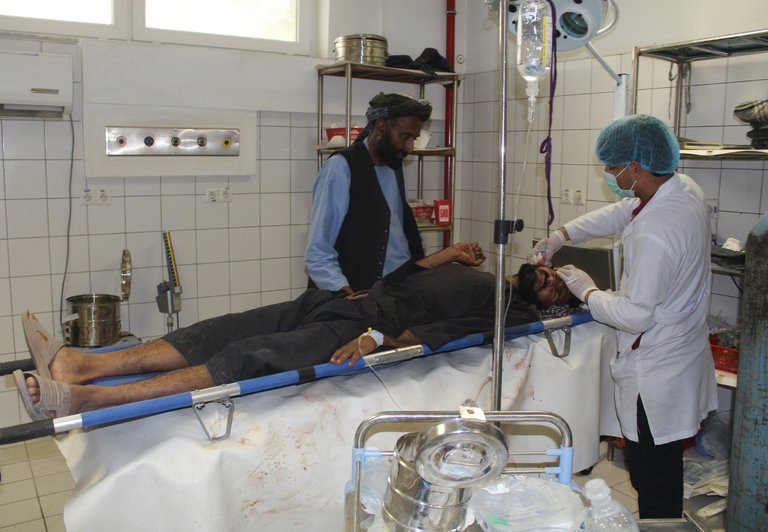Afghan Military Strike Kills at Least 70 at Mosque
KABUL, Afghanistan — Afghan military helicopters bombed a religious gathering in the northern province of Kunduz on Monday, killing at least 70 people and wounding 30 others, according to a local official in the area.
The official, Nasruddin Saadi, district governor of Dasht-e-Archi, said that the helicopters attacked a religious ceremony for which about 1,000 people had assembled in a mosque and surrounding fields around noon.
Witnesses reached by telephone said that the mosque was also a madrasa, or religious school, and that members of the Taliban had been present at the assembly, which had been organized to recognize graduates, appoint mullahs and elevate junior mullahs.
Mr. Saadi also said that the event was religious in nature and that the security forces had decided to attack because armed militants were attendance.
Advertisement
Continue reading the main story
However, Brig. Gen. Mohammad Radmanish, a spokesman for the Defense Ministry denied that the gathering had been for religious purposes. “The Taliban and other insurgent groups were planning to attack Afghan forces, but their plan was discovered by our forces,” he said.
Continue reading the main story
“During the attack by our helicopters, 21 terrorists, including a Taliban commander, have been killed,” he added. “It isn’t a residential area, and only terrorists and the Taliban were active in the place. There wasn’t any civilian in the area.”
Newsletter Sign Up
Continue reading the main story
Please verify you're not a robot by clicking the box.
Invalid email address. Please re-enter.
You must select a newsletter to subscribe to.
Sign Up You agree to receive occasional updates and special offers for The New York Times's products and services.
Thank you for subscribing.
An error has occurred. Please try again later.
You are already subscribed to this email.
View all New York Times newsletters.
- See Sample
- Manage Email Preferences
- Not you?
- Privacy Policy
- Opt out or contact us anytime
Nonetheless, witnesses said that children and other civilians were among the victims.
The district of Dasht-e-Archi is a Taliban stronghold that has often been the scene of heavy fighting. In May, an American drone strike in the district killed Mullah Abdul Salam, the Taliban “shadow governor” of Kunduz.
In 2016, an Afghan airstrike killed another prominent Taliban commander, Mawlavi Muawiyah, in Dasht-e-Archi, along with 21 other fighters, according to the military. American airstrikes in the area have repeatedly been blamed for civilian casualties, and Afghan forces are increasingly taking over air operations there.
A 40-year-old farmer from the district, who gave his name only as Mohammad, said that there had been a small number of armed Taliban fighters among the crowd at the assembly, but that most of the attendees were civilians, including madrasa students and graduates. He said that many children had been present, and that the first rockets fired by the helicopters had hit a group of youngsters. The farmer was unable to say how many had been killed or hurt, but added that one of the wounded was his nephew, age 10.
“Children come to any gathering where there is a free lunch,” he said.
A spokesman for the Taliban, Zabihullah Mujahid, said that the death toll was far higher than the official figure and that no insurgents had been present at the gathering, which was strictly religious in nature. Many Taliban commanders are also mullahs.
“Bombing civilians and then calling them mujahedeen is a habit of the Americans and their slaves,” Mr. Mujahid said, adding that 150 people had died in the military strike. , “Those responsible for killing civilians and insulting religion will be brought to justice.”
Follow Rod Nordland on Twitter: @rodnordland.
Najim Rahim contributed reporting from Mazar-i-Sharif, Afghanistan; and Fahim Abed and Fatima Faizi from Kabul.
Continue reading the main story Read the Original Article




























